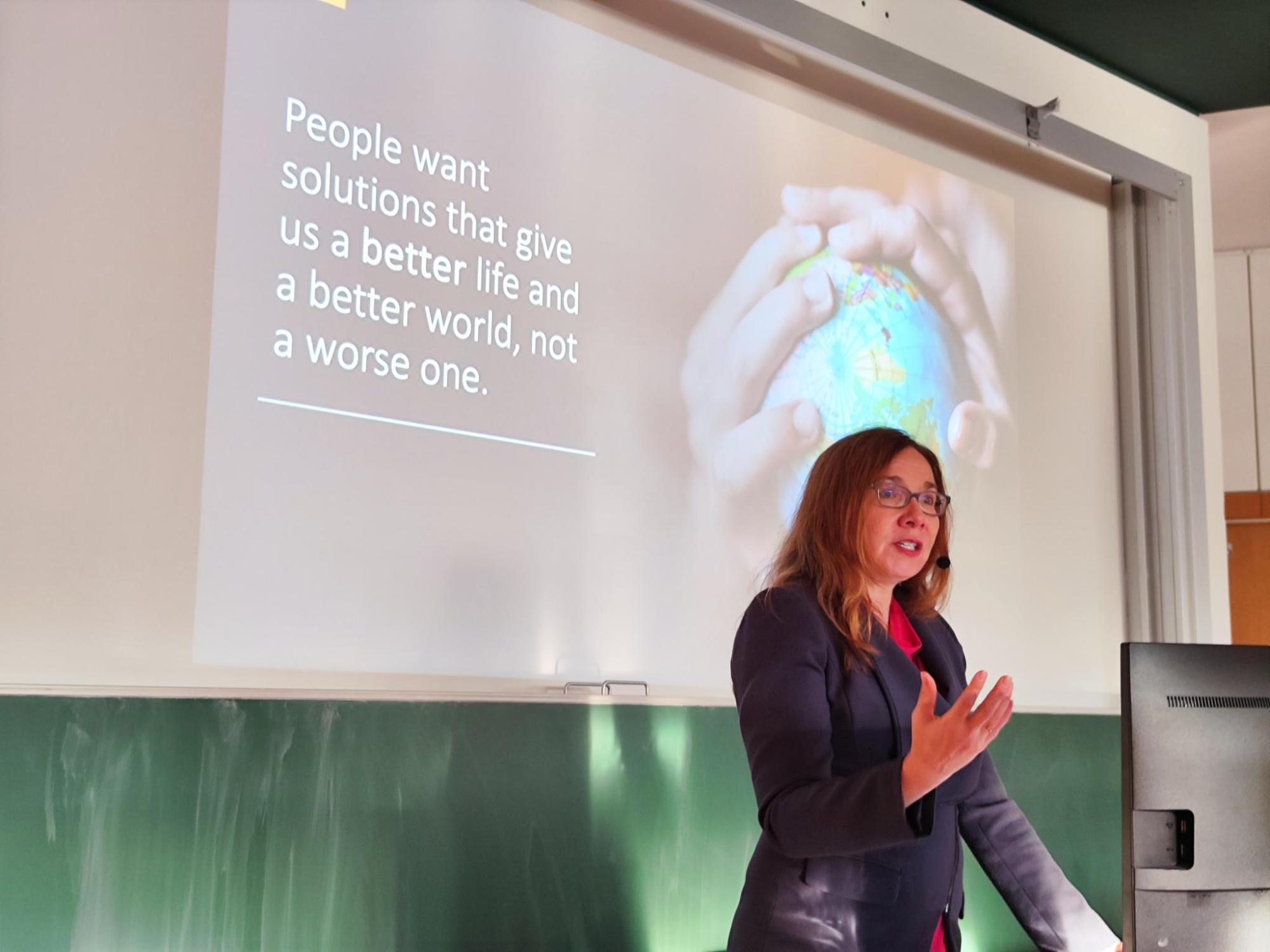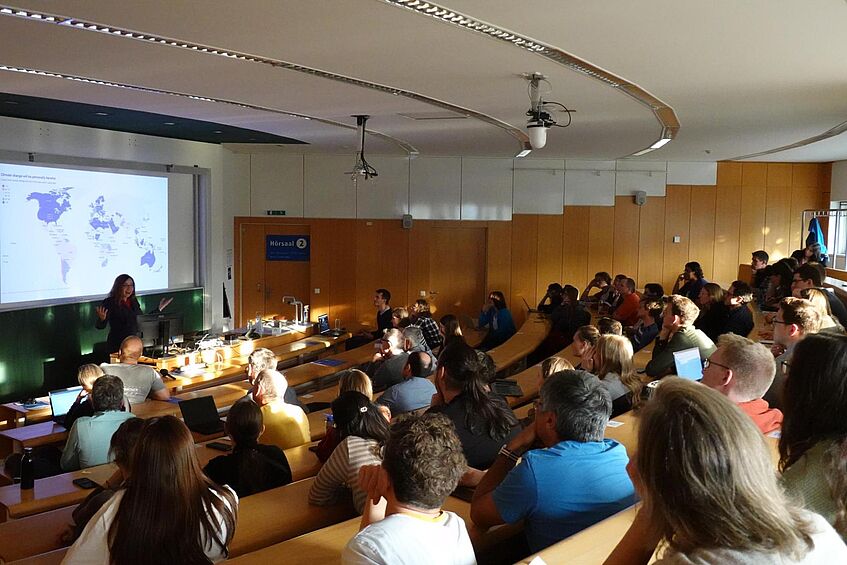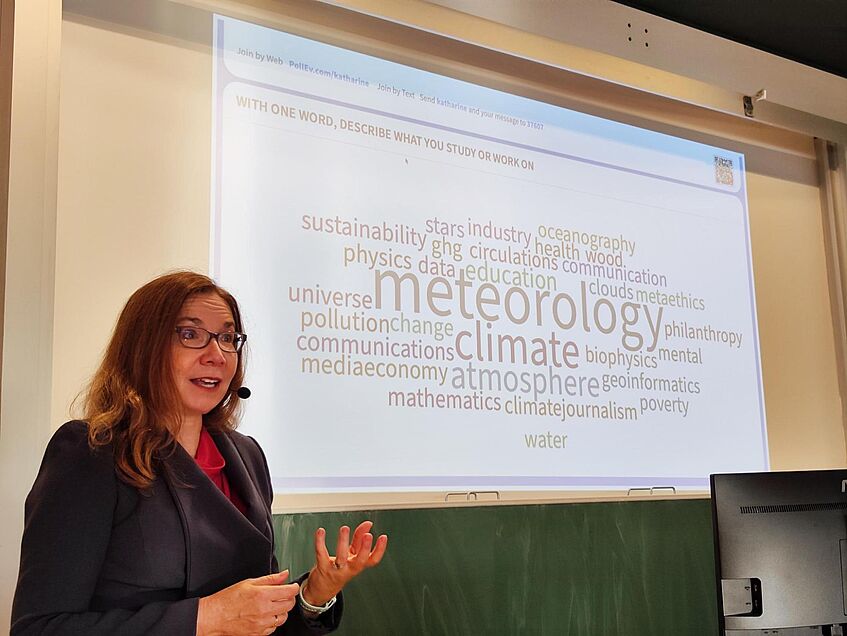Keynote by Katharine Hayhoe: From worried to activated
On Thursday October 19 2023, Katharine Hayhoe visited the University of Vienna for a very spontaneous talk on How to Catalyze Change in a Warming World. Katharine is one of the best-known physical climate scientists, a Professor at the Texas Tech University, chief scientist of the Nature Conservancy, and has written a book about how to tackle the seemingly impossible problem that the climate crisis presents.
The first time I saw Katharine in person was in a very unlikely palace: in the middle of the Egyptian desert. It was during last year's UN Climate Conference, the COP27, which took place in Sharm El Sheik, Egypt. I was very impressed by her positivity in the face of the looming climate crysis there. So when I realized that she was visiting Vienna for an event, I reached out to her and asked if she would be willing to also give a last-minute keynote at our Faculty. That was only two weeks before the talk ended up happening.
Her answer led to some frantic days of last-minute preparations, but each of them was worth it as a full lecture hall 2 at UZA II and the online audience could confirm. You can convince yourself by watching the recording on the University's YouTube channel.
Here I just want to focus on the message that stuck most with me here: it's not about getting more people to worry about climate change.
Katharine showed that most people are already worried. But many of us think that we are alone with our anxiety, which leads to a feeling of hopelessness and this does not trigger action. A perfectly normal reaction when considering human psychology, reinforced by the latest climate extreme in the daily news cycle or the newest book with ever more intimidating titles (such as The Uninhabitable Earth or The heat will kill you first).
We only act when we feel the efficacy of our actions - if we believe what we too can make a difference. More facts about how CO2 affects temperature or what more frequent extreme events will do to us do not achieve that. They feel distant, abstract, and irrelevant to our everyday concerns.
Katharine says we need to do the one thing we are not really doing: only 35% of people discuss climate change at least occasionally as a study that she showed in her presentation found. By coming together and realizing that we are not the only ones worrying we can build efficiency, we can get from worried to activated. On one of her slides she quoted journalist Sara Peach:
Talk is the fertile field in which cultural change begins; in its absence, it's impossible for a group of people to solve a problem. The goal of the conversation is not to tell people about climate change. It's to expand the number of people in the conversation.
And to get people into this conversion we need to talk about things that matter to them.
This was my eye-opener: It's not about explaining things better so that people understand and finally get worried. They already are. We need to find out what is worrying them in the here and now and enable them to do something about it.
This is hard and as a natural scientist I have certainly not been trained for this but Katharine convinced me that this might just be the only way that has a chance of working.
And we need to make this work, because we have no planet B.
-----
Author: Lukas Brunner



